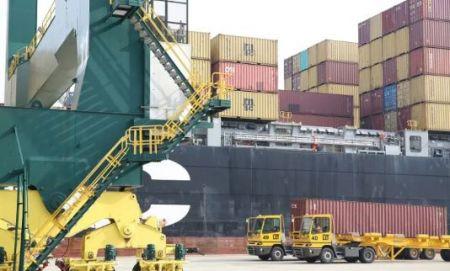
Tunisia is grappling with significant environmental challenges related to pollution, particularly in managing organic waste. According to the 2021 report by the United Nations Environment Programme (UNEP), approximately 931 million tons of food waste are generated annually worldwide, contributing to substantial methane and greenhouse gas emissions.
In Tunisia, about 60% of household waste comes from organic materials, representing a significant economic loss estimated at nearly 100 million dinars per year. Much of this is due to food waste, particularly subsidized products such as bread.
As part of this article, we attempted to gather the perspective of the Director-General of the National Agency for Organic Waste Management (Anged). However, a lack of cooperation and involvement from the Ministry of Environment limited access to official information, complicating the collection of relevant data.
This inefficient waste management has major repercussions on the environment, economy, and public health, highlighting the urgency of finding sustainable solutions.
In response to these environmental and economic challenges, Dr. Wassim Chaâbane, an expert in waste management and circular economy, emphasized that effective waste management primarily relies on proper organization, enforceable regulations supported by sustainable funding, effective communication, and continuous capacity building. Technology, often seen as the key to waste solutions, comes only at the end of the process. He highlighted the importance of selective sorting at both household and industrial levels as a fundamental step.
For example, in Germany, citizens have color-coded bins, with brown bins designated for organic waste intended for composting. An annual schedule specifies the collection days and times, ensuring optimal management and reduced costs. Sorted organic waste is sent to composting facilities, either aerobic or anaerobic, producing high-quality compost. However, contamination with microplastics remains a challenge, affecting compost and soil quality. When sorting is inadequate, mixed organic waste in black bins is processed in mechanical-biological treatment units but is often relegated to landfills after stabilization due to degraded quality.
In Tunisia, the percentage of organic waste composted is less than 1%, mainly due to the low market demand for compost. Farmers, though aware of the benefits of compost for improving the quality and quantity of their crops, prefer chemical fertilizers, which are more affordable. Despite this, Chaâbane noted that Tunisia has had a compost standard aligned with European standards since 2005. Legally, no law prohibits domestic or professional composting, and the 2024 Finance Law introduces tax incentives for green and circular economy projects, which will be strengthened in 2025.
Citizen Awareness in the Face of Environmental Challenges
To better understand citizen practices and attitudes toward these challenges, a survey conducted in Bizerte revealed key data highlighting the needs and opportunities related to composting.
According to the survey, conducted with a representative sample of Bizerte residents, general knowledge of composting and the circular economy is relatively widespread: 70% of respondents understand composting, and 66.7% are familiar with the circular economy. However, gaps remain. Regarding practices, only 26% of residents systematically sort their waste, while 46.7% always dispose of organic waste with other types of waste. This situation is partly attributed to the lack of composting spaces, an issue cited by 66.7% of respondents.
Nonetheless, 93.3% recognize the environmental benefits of composting, and 80% are willing to participate in a collective composting program. Among the barriers identified, a lack of information was cited by 50% of participants, followed by insufficient spaces (16.7%) and lack of time (10%). Regarding waste management, 56% of residents rated local practices as very poor, and 73.3% criticized local authorities for insufficient efforts to promote sustainable management. However, 90% of citizens believe that organic waste recovery through composting could reduce municipal waste management costs, and 80% support public investment in this sector.
These findings reveal a strong interest in local composting solutions, as well as a need for information and institutional support to overcome current obstacles.
Composting: A Promising Yet Underutilized Solution
In this context, the Sircles composting unit project stands out as an innovative and necessary response to transform organic waste into valuable resources, thereby reducing the ecological footprint. While the government and NGOs have launched several initiatives to combat pollution, including plastic waste, implementing solutions like the Sircles project remains crucial to amplify impact and ensure a more sustainable future.
The Sircles Project: An Innovative Approach to Organic Waste Recovery
Origins and Objectives of the Project
Amid growing pollution in Tunisia, where approximately 65% of total waste is organic, the Sircles project emerges as an effective and sustainable solution. Launched in February 2021 and funded by the European Union, this pilot project operates in seven Mediterranean countries, including Tunisia. Its goal is to recover organic waste through composting while promoting the circular economy and supporting social inclusion.
A Focus on Circular Economy and Social Inclusion
In Tunisia, Sircles offers an innovative approach to transform organic waste into valuable resources. Composting, an eco-friendly alternative to chemical fertilizers, is central to the project. Using a windrow composting method, it processes various residues such as food waste, green waste, and manure to produce high-quality compost suitable for agriculture.
Beyond its environmental value, this solution creates job opportunities, particularly for youth, women, and vulnerable groups often affected by unemployment in the Mediterranean region.
In an interview, Aymen Louhichi, head of the composting unit, highlighted the absence of an organic waste recycling structure in Bizerte and the importance of such a project given the abundance of waste during autumn and winter. He noted that informal collectors, carpenters, farmers, and a municipal contractor contribute to the collection and sorting process. Monthly costs amount to 15,600 dinars, with an annual rent of 6,000 dinars, while compost sales (650 dinars/ton) generate 118,300 dinars annually, covering expenses.
He emphasized the need for greater involvement from administrations, associations, and partnerships with the media. Despite the availability of waste, he noted the lack of regulation as a significant barrier. Training programs, such as those at the Rimel center, and field visits raise citizen awareness.
Although challenges like low engagement remain, Louhichi observed a positive impact, particularly among doctors and farmers interested in organic farming. He remains optimistic about the project’s future, hoping for its expansion and sustainability.
Logistical Challenges and Proposed Solutions
Transportation, Collection, and Sorting of Waste: Major Obstacles
Despite its benefits, the project faces challenges, including high transport costs, collection frequency, and insufficient sorting of waste at the source. To address these issues, Sircles is working on optimizing logistical processes and implementing awareness programs to encourage more rigorous sorting.
The Role of Awareness and Environmental Education
Educational visits, particularly for schoolchildren and associations, are organized to promote organic waste management and domestic compost use.
During an interview, Yosri, a worker at the composting unit, shared his experience, highlighting his versatile role in all stages of the process. He emphasized the importance of sorting to ensure compost quality. Before joining the unit, he had no knowledge of composting but now finds the work stable and fulfilling, both personally and for the community. He observed a positive impact, with citizens showing more interest in responsible waste management. However, he identified challenges such as the lack of a sieve and the need to hire more workers to ease the workload. While citizen awareness remains limited, progress is evident in their behavior.
Future Perspectives: Expanding the Impact of Composting in Tunisia
Ongoing pilot projects have already delivered significant results in sustainable waste management and professional integration. In the long term, Sircles hopes to expand its impact in Tunisia and beyond, contributing to a transition toward a more environmentally friendly circular economy. Through this model, Sircles demonstrates that the circular economy can be a driver of sustainability and green job creation while improving waste management.
Toward Sustainable Organic Waste Management
By combining citizen initiatives, innovative solutions like Sircles, and increased institutional support, Tunisia can embark on a path toward sustainable organic waste management, mitigating the environmental and economic impacts of pollution.
Source: La presse



